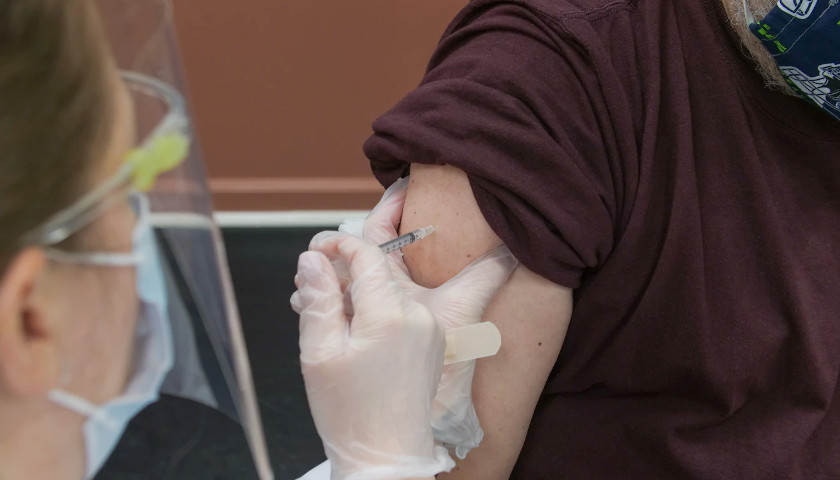by Scott McClallen
On Tuesday, The federal government granted Gov. Gretchen Whitmer’s and other states governors’ request to release reserve COVID-19 doses being held back to ensure second doses of the vaccine are available.
Whitmer has blamed the federal government for the state’s slow COVID-19 vaccine rollout.
The state has been allocated 829,200 vaccines but has only injected 233,085— or 28% of them.
The Centers for Disease Control and Prevention ranks Michigan 38th out of 50 for COVID-19 doses administered per 100,000 people.
Just because the state was allocated a dose of the two-dose vaccine doesn’t mean health care providers have them yet or that they’re even in the state, however.
The state COVID-19 Vaccine Dashboard has a category for “vaccines shipped” but not “vaccines received,” Michigan Health and Hospital Association (MHA) spokesperson John Karasinski told The Center Square in an email.
It’s unclear how long it’ll take to make the vaccine available to all 10 million Michiganders.
On Monday, Whitmer also asked Health and Human Services Secretary Alex Azar if the state could directly purchase up to 100,000 doses of the COVID-19 vaccine.
Whitmer hasn’t received an answer yet, but celebrated Tuesday’s announcement.
“Michigan and states across the country remain ready to get more shots in arms, which is why the Trump Administration’s decision to grant our request and release millions of doses of the vaccine is so crucial,” Whitmer said in a statement.
“It will take all of us – the federal government, state and local leaders, health departments, and everyday Americans – to ensure everyone can get the safe and effective vaccine.”
Last week, eight governors, including Whitmer, asked Azar and Operation Warp Speed CEO General Gustave Perna to distribute additional vaccine doses being held back by President Donald Trump’s administration to ensure second doses are available.
However, on Tuesday morning, the Associated Press reported the Trump administration is asking states no longer hold back the second dose to accelerate injection of COVID-19 vaccines to people 65 and older and others at high risk.
“We now believe that our manufacturing is predictable enough that we can ensure second doses are available for people from ongoing production,” Azar told ABC’s “Good Morning America.” “So everything is now available to our states and our health care providers.”
It’s unclear if this will alter the state’s distribution plan.
The state’s goal is to vaccinate 70% of residents over age 16 as soon as possible.
Michigan’s plan targets those aged 65 and older, which comprises 80% of COVID-19 deaths in the state.
The state plans to enact the vaccine priority schedule below.
- Phase 1A: Paid and unpaid persons serving in healthcare settings who could directly or indirectly expose patients and can’t work from home and residents in long-term care facilities.
- Phase 1B: Persons 75 years of age or older and frontline essential workers in critical infrastructure.
- Phase 1C: Individuals 16 years of age or older at high risk of severe illness due to COVID-19 infection and some other essential workers whose position impacts life, safety, and protection during the COVID-19 response.
- Phase 2: Individuals 16 years of age or older.
– – –
Scott McClallen is a staff writer covering Michigan and Minnesota for The Center Square. A graduate of Hillsdale College, his work has appeared on Forbes.com and FEE.org. Previously, he worked as a financial analyst at Pepsi.





